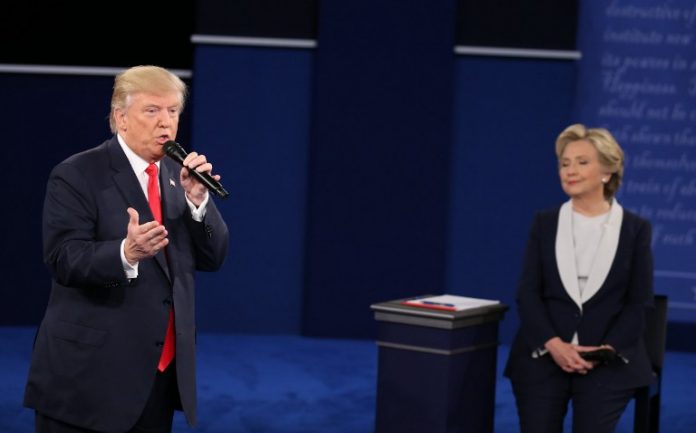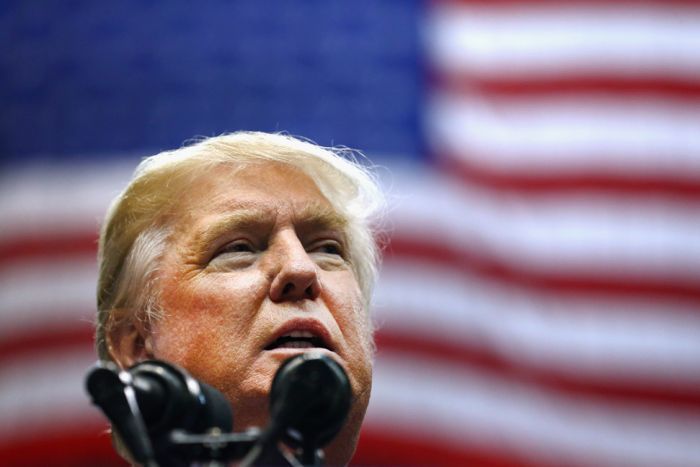
Donald Trump on Monday laid out his plan to lower taxes, freeze financial regulations and trigger an energy revival which he said would spur economic growth and “open a new chapter in American prosperity.”
It was a broad-brush outline with some meaty specifics, aimed in part at reviving the Republican presidential nominee’s flagging campaign after a series of missteps in recent weeks that sent him careening off message.
Here are highlights of the Trump economic plan.
– Lower taxes –
The lynchpin of Trump’s plan is the slashing of various taxes on American individuals and corporations, a proposal he said would lead to the biggest tax reform since president Ronald Reagan in the 1980s.
He would sharply reduce corporate tax to 15 percent from the current 35 percent, and set a 10 percent tax on what he described as trillions of dollars that US businesses have “now parked overseas” but want to repatriate into the country.
Personal income tax rates would be compressed from seven brackets to just three, with today’s highest rate of 39.6 percent shrinking to 33 percent.
He would also abolish the estate tax, and said he would allow parents to “fully deduct” the cost of childcare spending from their taxes.
– Moratorium on regulations –
Trump would immediately slap a moratorium on all federal agency regulations that he believes are needlessly killing jobs. He said he would “cut regulations massively.”
Already on the chopping block would be the Environmental Protection Agency’s Clean Power Plan, which forces investment in renewable energy at the expense of coal and natural gas, and the Interior Department’s moratorium on coal mining permits.
He would also repeal President Barack Obama’s landmark health care law.
– Trade reform –
Trump is opposed to the proposed Trans-Pacific Partnership backed by Obama and Republican congressional leaders. It was signed by his administration and 11 other nations in 2015, but hit a snag in Congress.
He wants to abolish the North American Free Trade Agreement with Canada and Mexico that was signed into law in 1994, describing it as a pact that has “shipped your jobs to Mexico and other countries.”
Trump reiterated his support for strengthened protections against currency manipulation that allow other countries to “cheat by unfairly subsidizing their goods.”
China, warned Trump, “is responsible for nearly half of our entire trade deficit.” He said he would go after Beijing for its “rampant” theft of intellectual property, its dumping of Chinese products on the US market and currency manipulation.
– Energy revival –
Trump called for an “energy revolution,” starting with cancellation of Obama’s climate plan and the Paris Climate Agreement, and a halt of US payments to United Nations global warming programs.
He would also expand offshore drilling, increase natural gas production, and reverse what he called Obama’s “war on coal” that led to the loss of thousands of energy industry jobs.
He would call on Canadian firm TransCanada to renew its permit application for building Keystone XL, the crude oil pipeline between Canada and US oil refineries rejected by the Obama administration last year.
END



Won’t say much on this. As much as these plans look great at first sight, one needs to do a proper cost and benefit analysis of these plans. You don’t want a situation of drinking dirty water to quench the thirst and ignoring it’s implications.